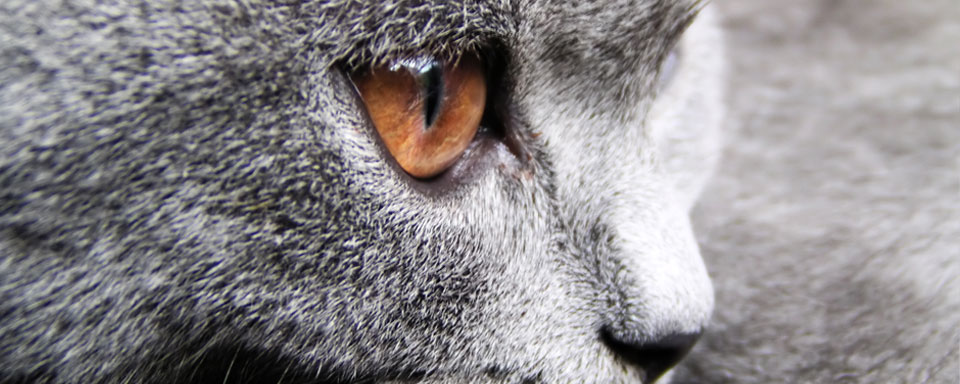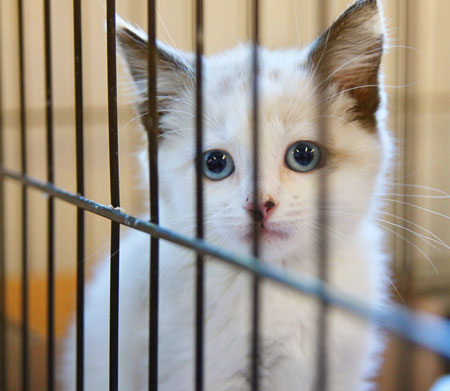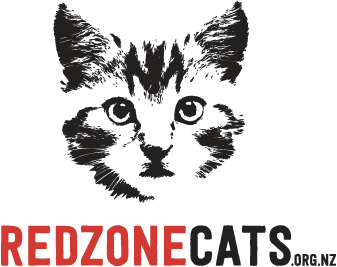
WHAT WE DO
We locate red zone cats by setting up feeding stations and surveillance. After careful monitoring, we then trap the cats in a safe and humane way. These cats are tested for any viruses or diseases, and then vaccinated. Our aim is to re-home every healthy cat rescued from the red zone.
FEEDING AND SURVEILLANCE
Almost all cats in the red zone, even those who have once had a home, are only seen on camera. This is because there is no one living in the red zone anymore and the cats have become scared
of people.
When commencing work in an area with little or no existing surveillance, three to six feeding stations are set up at suitable locations. These are visited once a day, to see whether food is being taken. The area is monitored with action-activated day/night vision cameras. Once a feeding station has been established and cats are known to be visiting, it is important to maintain the station, even when the camera has moved on to another site.
We also maintain contact with the small number of people still living locally. These homes are visited by our team with the best available photos of cats who are shortlisted for trapping, to ensure none of the cats live locally.

TRAPPING
Due to the large number of homeless cats in the red zone, surveillance data is essential. It is used to target high priority cases and to trap humanely with minimal stress, by closely monitoring traps once they have been set.
Using a strategic approach to trapping and based on surveillance information about routines, a cat is usually picked up very quickly. The trap is left tied open with food inside, for at least one or two days, before attempting to trap (rehearsal feeding). This method ensures that the cat is used to going in the cage for food.
Once home, the cat is then transferred from the trap into an enclosure which has been kitted out in advance with litter, water, food and an enclosed bed.
VET CARE AND SOCIALISATION
All cats rescued are registered with McMaster & Heap vets and health checked, desexed, vaccinated and microchipped. Some cats need dental care and where necessary more specialised treatment is undertaken including removal of skin cancers and hernia repair.
Many cats have never had a home and require socialisation. Redzonecats have a large home-like shelter where cats live in communities while being socialised for placement. New entrants learn by observing cats who have already completed their socialisation.
Placements are often made as buddy pairs. This gives shy cats confidence when they are getting used to their new family in their foreverhome.
RedZoneCats website donated by The Agency Communications Ltd

RedZoneCats.co.nz 2014-2021

